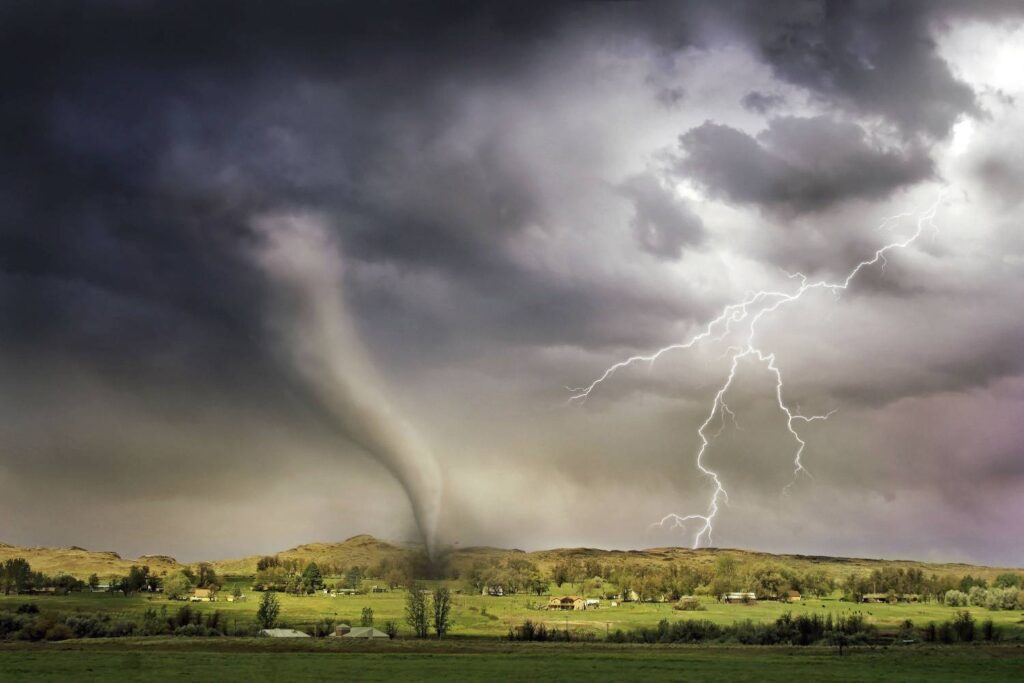5 Essential Tips for Building Your Family’s Disaster Survival Plan

Does your family know what to do if a natural disaster threatens your home? Most people don’t like to think about worst case scenarios, but thinking through what will happen and how to respond to natural disasters in your region is very important. In fact, being proactive in these ways will increase your — and your family’s — odds of surviving without harm. These tips can help you create a plan and keep your family safe.
Start With a Basic Emergency Plan
Disasters strike without warning. That is why it is critical to formulate your emergency disaster plan as soon as possible to protect your family and, if you have one, your home business. It is crucial that all of your family members know how to react to different kinds of disasters. From getting to higher ground during floods to taking shelter during tornadoes, practicing your emergency plan with family will help keep you safe if the real thing ever strikes. And you can protect your home business by backing up all of your vital records to the cloud, and finding an alternative on-site facility that could be used in a pinch.
If you have seniors in your family, Daily Caring suggests preparing an emergency kit for them and building a support network with neighbors and nearby friends, so they have support in the case of a disaster or emergency. This will give them, and you, peace of mind if you cannot get to them quickly enough to help.
Get Helpful Tools for Your Kit
Every household in your extended family should assemble a grab box for emergencies. This kit should include non-perishable food, plenty of bottled water, flashlights and batteries, among other needed items. Keep a kit in your home and consider building a go-bag for each family member. These bags need to have dry clothes, medications and sustenance. They should also include helpful tech tools, such as a car phone charger and an emergency radio. Keep them up high near an exit in your home or in your car during seasons prone to disasters.
Use Online Resources
As long as you have an Internet connection on your smartphone or laptop, you should have access to a plethora of emergency information. Keeping devices charged and connected allows you to receive severe weather alerts and look up information regarding incoming emergencies.
Ready.gov points out that you can sign up for emergency alerts, so that you receive texts or emails anytime there is a dangerous situation approaching your area. Online resources are also helpful when you are only planning for an emergency.
Prepare for Every Possibility
In the Midwest, it is fairly common to have strong storms and dangerous tornadoes during certain parts of the year. While many people in this area know how to react if a twister touches down or a severe storm threatens their home, it is essential to prepare for other natural disasters as well, such as wildfires.
Research where and how to evacuate in case of an emergency. Once you know where to go, use a Walk Score map to plot out the best route to reach it on foot. This may be your only option if your vehicle is rendered inoperable.
You should also take steps to prepare your home by assessing the inside and outside for possible dangers before they become a problem. You can start by removing debris from your yard and having trees removed from around your home. To find a reliable tree removal service, search online for local tree removal companies and be sure to read any available reviews. Small steps can be the most effective in helping your loved ones survive a natural disaster.
Know Where to Go for Help
When a disaster hits, you may need to seek shelter or assistance away from your home. If your area has been evacuated due to disaster, find shelters that are open. You should also be aware of varying routes to get to local hospitals. Emergency services, such as ambulances and police, are not always available during wide-scale disasters. It is important to be able to get to the services you or a loved one needs.
If you or anyone in your family is a senior or has a chronic illness, it is helpful to keep copies of medical information in your emergency kit. Items such as medical records, medications, prescription information, insurance documents, and contacts can all be critical.
Make a Plan and Be Prepared
Natural disasters and emergencies can strike without warning, at any time and in any place. Fortunately, taking some steps in advance can help increase your ability to survive these issues unscathed. Make a plan for your loved ones, your pets, and your business, so that you have the information and essentials available when you need them. In the end, it may just save your life.
Photo via Pexels
